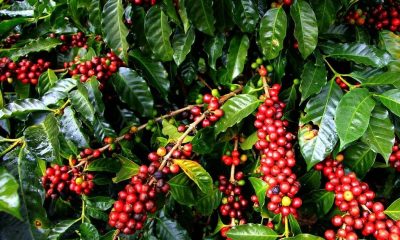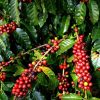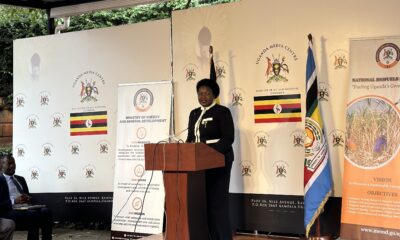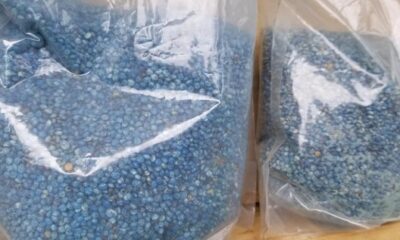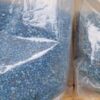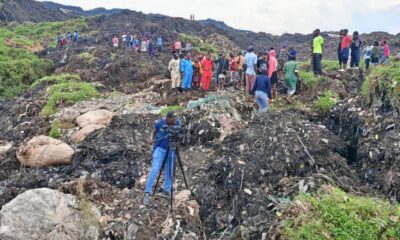Guest Writer
Reverse ‘evil’ of animal & poultry feed imports

Uganda loosing billions in imported animal feeds
Latest data from state-run Uganda Bureau of Statistics (UBOS), according to a recent report published by The Sunrise Newspaper, indicates that Uganda’s feed imports have tripled from US$6m to US$17.7m between 2016/17 and 2017/18 financial years.
These statistics and all the benefits accruing from them can only and only please countries from where Uganda imports the animal and poultry feeds. Not pleasing to the Ugandan state or society.
This is largely because Uganda possess abundant naturally-occurring and farmer-produced animal and poultry feeds. From snail shells littering the shores of most of our lakes, and the plenty of silver-fish (mukene) in the lakes, plus the huge amounts of cereals, oil-seeds, tubers and pulses produced by farmers annually, Uganda shouldn’t be importing animal and poultry feeds.
Ugandan farmers annually and seasonally produce maize, rice, millet, simsim (sesame), sorghum, soya-beans, groundnuts, cotton, cassava, human-induced/raised maggots, snails, cattle-blood collected daily in abattoirs and ponded-fishes are all potential and proven sources of animal and poultry feed, many of them possessing rich and rare vital nutrients (proteins, magnesium, zinc, iron and vitamins e.t.c).
Besides, our scientists and researchers can also study the huge vegetation-biodiversity to profile the plenty of wild-fruits, leaves, tree-barks and roots, that can constitute rich sources of supplementary animal and poultry feeds, to add to the already known/existing sources.
Therefore, the Government should not look on as the nation spends such colossal sums of hard-earned foreign currency [which is in perpetually in short supply], on the importation of animal and poultry feeds. If this category of imports are classified among non-taxables, then the Government doesn’t earn import-tax [revenue] from them.
Government then has the onus to promote locally-produced animal and poultry feeds at primary (on-farm) and tertiary (industrial processing and value-addition) in order to levy taxes on revenues or incomes these animal and poultry feeds’ industries or factories would earn or attract as businesses.
Even the multitudes of civil society organizations (CSOs) involved in policy advocacy in the agricultural sector especially those specific farmer-organizations working for the interests of farmers, should not allow the status quo of importation of animal and poultry feeds to persist.
It is shameful that the over US$17m spent on feeds’ importation is not earned by our farmers, fisherfolk and local processors/producers of animal/poultry feeds.
That’s why the majority of our farmers are not wealthy and do not significantly contribute to the national coffers. Because they don’t earn additional incomes apart from what they get from sell of crop produce [cash and food crops], animals, birds, and other farm produce like milk and fish, or fibres.
This traditional setup/status quo requires to be changed, accordingly, for development of Uganda’s agriculture.
Poultry farmers are shifting away from fish (mukeene) as a source of protein to soy. This trend can only be good and welcome if the soy-meal/feeds are from Ugandan farmers not imports. Uganda’s potential to grow and produce large amounts of soya-beans alone, is huge.
Once there’s an established market for soya from the ever expanding poultry industry then there’s cause for farmers to up their game, as animals and poultry consume feeds every hour, every minute and all-year round.
If anything the oil and protein-rich soya is one crop that has multiple farm, household and industrial uses.
From being a delicious bean when roasted/fried like g-nuts, its locally consumed by Ugandans in roasted form, and consumed as porridge boiled from soy-flour, its also blended to fortify other foods like millet, sorghum, rice, gnut and maize with protein.
Soy is also used in cakes, biscuits, mandaz and chapati’s wheat flour.
At industrial level, soya is processed for high-value protein-rich edible oil, while the residues are good animal and poultry feeds—blended with maize or other cereals.
These multiple uses are good for any economy and Uganda’s is not optimally deriving such immense benefits from this crop.
Therefore, there should be a deliberate policy formulated by the Government to classify soya as one of the national strategic crops or resources [raw material] for small (cottage) and medium enterprise (SME) development—value-chains mentioned above in mind for deliberate promotion to create employment and incomes.
At the international level, big agro-production powers like USA, Canada, Brazil, Argentina, India, China, Mexico—dominate the global soy-bean trade—a vast percentage genetically-modified (GM) soy-bean that has been enabled to tolerate herbicides (herbicide-tolerant [HT] round-up ready) spread against weeds which are eradicated and the GM-soybean remains standing.
This GM-soybean technology, alone has enabled USA, Canada, Brazil, Argentina and Mexico to realize huge yields annually dominating the lucrative and ever-growing soybean market, due to higher demand from Europe and China.
While Europe mainly imports for her huge livestock and poultry industry, China on the other hand imports to feed both humans and livestock/poultry. Soybean is also used in both blocs’ powerful bakery industries. Uganda has, among her seven GM-crops, HT-soybean that has been developed by Makerere University’s Agriculture Associate Professor, Dr. Phinehas Tukamuhabwa.
It’s set to undergo field trials at the Makerere University Agricultural Research Institute Kabanyolo (MUARIK)—about 10 km north-east of Kampala.
Mr. Peter Wamboga-Mugirya
The Writer is the Director of Communications at The Science Livelihoods and Dev’t (SCIFODE)
Comments




